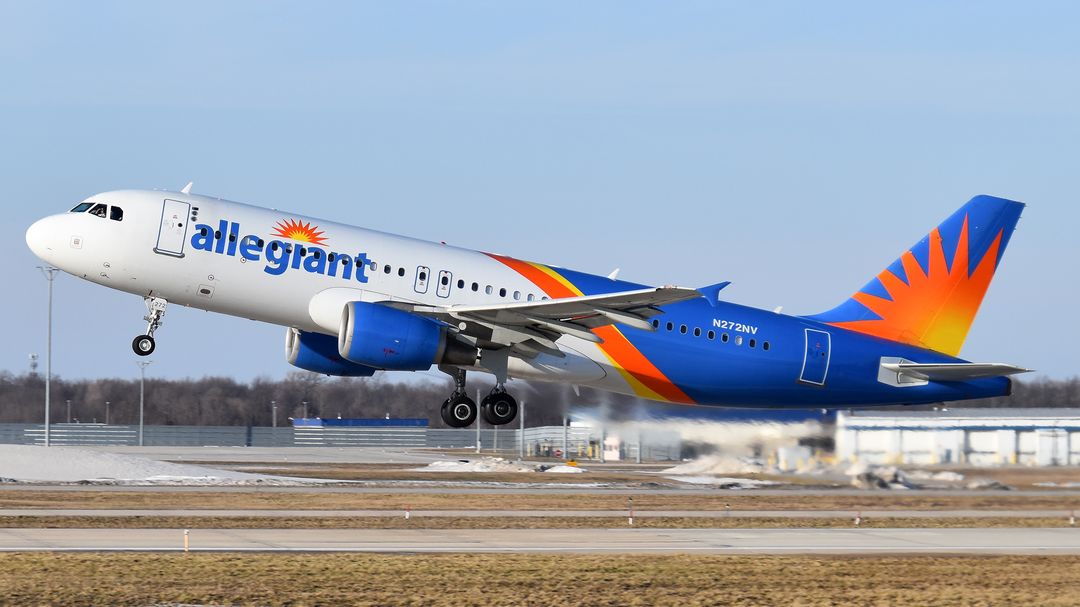In recent months within the United States, there has been an increasing amount of tension between aircraft flight crew (pilots and flight attendants) and the airlines they work for. This is due to U.S. airline pilots and cabin crew having to work longer hours for less pay and benefits.
The solution to this tension? Workers unions. Many airlines have been repeatedly forced to discuss with their employees and subsequent workers' unions about issues such as benefits and pay, otherwise, those airlines would face pickets and strikes from pilots. To avoid this, U.S. low-cost carrier Allegiant Air has reached an agreement with the airlines' flight attendant workers union the "Transport Workers Union of America" (TWU) to provide better benefits and pay for the flight attendants working at the carrier.

Discussions between Allegiant and the TWU have been going on for 10 months.
This is the second contract TWU has been able to create for flight attendants working at Allegiant, as the first contract between TWU and Allegiant Air expired in mid-2022, hence the previously mentioned 10-month-long negotiation.
The new agreement calls for Allegiant to increase the wages and dead-head pay of its nearly 1,900 flight attendants. As well as increased pay, attendants will also be entitled to more retirement benefits, sick and vacation days, and flexible hours. Another big part of the agreement stipulates that flight attendants will now be able to earn a commission (current percentage unknown) every time a passenger purchases a product (snack, drink, duty-free item) onboard an Allegiant flight. This makes Allegiant the first low-cost carrier in the United States to implement commissions for flight attendants.
Before a possible implementation of the contract, it will need to be voted upon and ratified by ..."the [TWU] union's full membership..."

Voting is expected to begin in late June. Should the vote pass, Allegiant will institute TWU's new employee-airline contract for a tenure of 5 years.
"...We would like to commend the hard work and dedication of the negotiating teams for both Allegiant and the TWU for meaningfully improving our contract on behalf of our flight attendants...This historic deal reflects our shared commitment of fostering a work environment that properly recognizes the invaluable contributions they [Allegiant Air flight attendants] provide..." states Greg Andersen, the president of Allegiant Air.
"The Tentative Agreement will catapult our workgroup to the top of the Low-Cost Carriers and greatly improve the quality of life for everyone..." stated Christina Gilford, the president of the branch of the Transport Worker's Union responsible for the new, highly beneficial contract.
Allegiant Air - Rich Fleet History
The carrier was founded in January of 1997 as WestJet Express, and almost immediately after its founding, the young airline found itself in a trademark dispute with another newly founded airline - the Canadian company WestJet.
After losing this trademark dispute, WestJet Express changed its name to Allegiant Air. After declaring Chapter 11 bankruptcy in 2000 due to rising costs related to fuel prices, Allegiant began to transition to the low-cost business model it has today under veteran airline CEO Maurice J. Gallagher Jr, who 23 years on, is still the CEO of Allegiant.

Between the early 2000s and November 2018, Allegiant operated a fleet of McDonnell Douglass MD-80 family (-82,-83,-87,-88) aircraft. In 2010, the airline purchased six Boeing 757-200s with the intention of beginning flights to Hawaii. These 757s were retired just seven years later in October 2017.
In the early to mid-2010s, Allegiant also began the introduction of the Airbus A319 and A320 into its fleet. Currently, the airline is an all-domestic carrier, operating an all-Airbus A320 family fleet and flying to 133 destinations across the United States, although the company did recently place a large order for Boeing 737 MAXs.
This Week in Aviation: The 10 Stories That Mattered Most » Delta Orders 30 Boeing 787-10, Options for Additional 30 » SAS Hosts Air-to-Ground CS:GO Match at 30,000 Feet via Starlink »
Comments (0)
Add Your Comment
SHARE
TAGS
NEWS Allegiant A320 A319 MD80 Allegiant Air Workers Union Union 737 MAXRECENTLY PUBLISHED
 Why Gogo is Refusing to Join the 'Starlink Speed Race' — And Why It's Winning Anyway
In a recent interview with AeroXplorer, Gogo's SVP Dave Falberg made it clear: Gogo isn't competing in a speed race against Starlink. Rather, it is competing in a race of reliability and integration.
NEWS
READ MORE »
Why Gogo is Refusing to Join the 'Starlink Speed Race' — And Why It's Winning Anyway
In a recent interview with AeroXplorer, Gogo's SVP Dave Falberg made it clear: Gogo isn't competing in a speed race against Starlink. Rather, it is competing in a race of reliability and integration.
NEWS
READ MORE »
 SAS Hosts Air-to-Ground CS:GO Match at 30,000 Feet via Starlink
On January 14, to prove the low-latency capabilities of the SpaceX-powered system, the airline hosted a live multiplayer Counter-Strike video game tournament at 30,000 feet.
NEWS
READ MORE »
SAS Hosts Air-to-Ground CS:GO Match at 30,000 Feet via Starlink
On January 14, to prove the low-latency capabilities of the SpaceX-powered system, the airline hosted a live multiplayer Counter-Strike video game tournament at 30,000 feet.
NEWS
READ MORE »
 Student Education as a Pathway to an Aviation Career
Explore how to become a pilot through aviation degree programs and flight school. Learn about requirements, costs, and career options.
INFORMATIONAL
READ MORE »
Student Education as a Pathway to an Aviation Career
Explore how to become a pilot through aviation degree programs and flight school. Learn about requirements, costs, and career options.
INFORMATIONAL
READ MORE »



